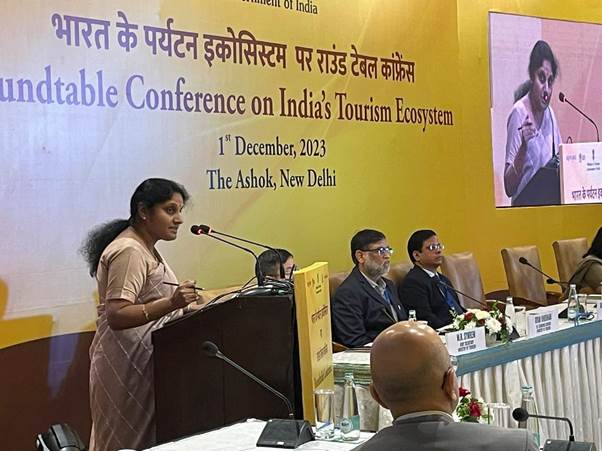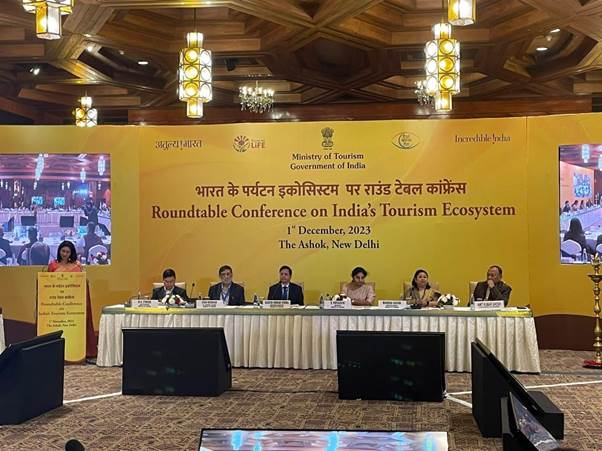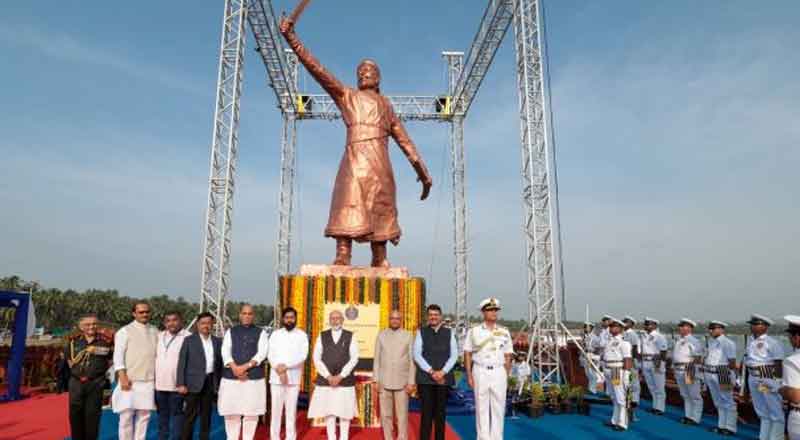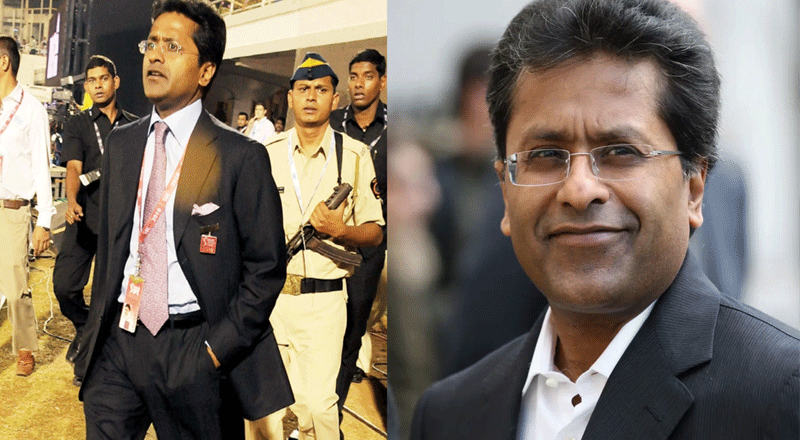The Ministry of Tourism recently organized a round Table Conference on December 01, 2023, in New Delhi.
The conference aimed to explore and leverage the immense potential of India’s Tourism Ecosystem. The roundtable facilitated robust discussions between government authorities and industry leaders, centring on policies and factors crucial for sustainable and resilient development in the travel and tourism sector.


A diverse array of delegates from esteemed organizations, including NITI Aayog, UNESCO, UNEP, WTTCII, IUCN, IHMCL, IRCTC, PHD Chamber of Commerce and Industry, FHRAI, and international entities like the Intrepid Group participated in the conference. Ministries/Departments from the Central and State Governments, along with representatives from the travel and tourism industry and educational institutes, enriched the dialogue.
The conference’s objectives covered vital components of the Tourism Ecosystem, including Governance, Local Community Engagement, Labour’s Role, Economic Impact, Technology’s Influence, Tourist Destinations, Cultural and Natural Resource Preservation, Infrastructure, and Environmental Sustainability.
Diverse thematic sessions were designed, focusing on Enabling Environment, Travel and Tourism Policy and Enabling Conditions, Tourism Demand Drivers and Infrastructure, and Travel and Tourism Sustainability.
The discussions extended to strategic focus areas, emphasizing the identification of culturally rich states, leveraging digital strategies for redirecting traffic, content creation to counter negative perceptions, and the critical need for reliable data and benchmarking. Additionally, attention was drawn to historical trends in booking decisions, the imperative of education policy alignment, and the changing perception among youth regarding tourism careers.
The outcome of this Conference is expected to significantly enhance the Ministry’s knowledge base for steering tourism in India and reinforcing the country’s global tourism standing.
The Key takeaways of the roundtable spanned paramount concerns such as safety and security, healthcare tourism potential, the impact of digitalization, a transformation in foreign perception, coordinated policy efforts, media representation, and initiatives for talent development, retention, and repositioning the industry.
The Round Table Conference served as a robust platform for knowledge exchange and also paved the way for collaborative efforts to steer India’s tourism towards sustainable and innovative growth. The collective insights and strategies discussed during this event are anticipated to significantly contribute to India’s position as a global tourism leader.





